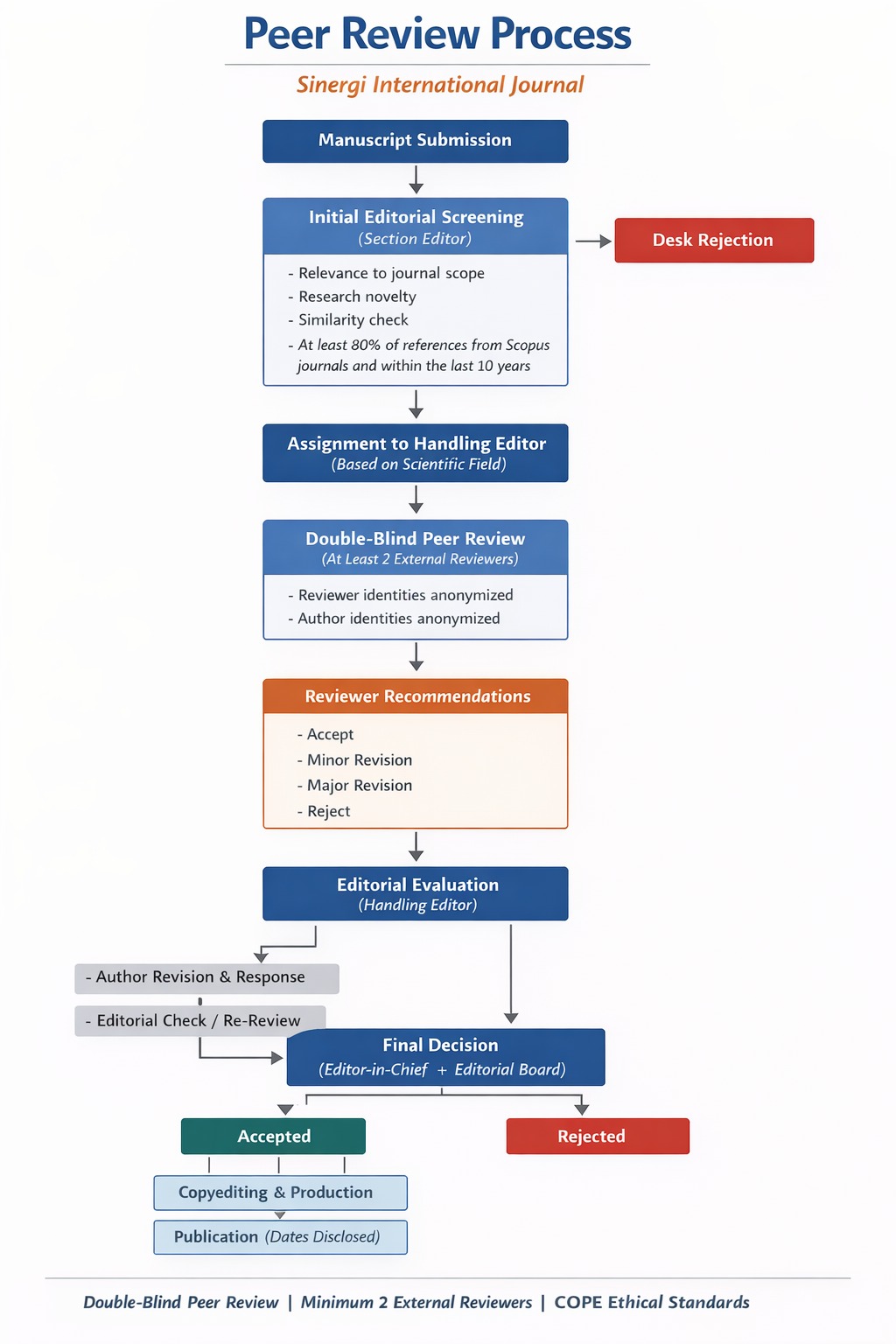
Peer Review Process

Peer Review Process
The Sinergi International Journal of Logistics implements a comprehensive evaluation process for all manuscript submissions, ensuring high standards of academic merit and innovation. Our review system employs a double-blind methodology, preserving anonymity between authors and reviewers throughout the assessment.
Our editorial team comprises logistics experts from diverse global backgrounds, offering a wide range of perspectives and insights. This international composition enhances the depth and breadth of manuscript evaluations, leading to well-rounded editorial decisions.
The review process consists of the following stages:
- Initial Manuscript Screening: The Editor-in-Chief will screen a submitted manuscript to ensure its conformity to the Sinergi International Journal of Logistics scope and basic submission requirements. The Editor-in-chief will assign an editor based on the articles’ scientific field
- In-Depth Peer Evaluation: Manuscripts passing the initial screening are assigned to a handling editor. This editor then:
- Selects at least two experts in the relevant logistics field
- Facilitates a double-blind peer review process
- Ensures a thorough and unbiased assessment of the work
- Decision Based on Collective Expert Input: The journal requires a minimum of two expert reviews before proceeding with any decision. In cases of significant discrepancies between reviews, the handling editor may:
- Engage a third reviewer for additional insights
- Seek further clarification from existing reviewers
At this stage, several outcomes are possible:
- Rejection of the manuscript
- Request for minor revisions
- Request for major revisions
- Acceptance without changes
- Recommendation for resubmission (if substantial content or language modifications are necessary)
Accepted manuscripts are returned to authors for formatting refinements. The Editor-in-Chief makes the final acceptance decision, considering:
- Recommendations from the handling editor
- Approval from the editorial board
- Overall contribution to the field of logistics
- Internal Revision and Reassessment: Authors of manuscripts requiring revisions are given a three-week window to modify and reformat their work. The handling editor then:
- Reassesses the revised manuscript
- Determines if changes adequately address reviewers' comments and suggestions
- May initiate additional revision cycles if necessary
- Final Publication Decision: In this concluding stage, the revised manuscript faces a binary outcome: acceptance or rejection. The decision hinges on:
- The handling editor's assessment of improvements made
- Alignment with the Sinergi International Journal of Logistics' quality benchmarks
- Potential impact on the field of logistics
Manuscripts failing to incorporate necessary changes or falling short of the journal's rigorous standards will be rejected.
This multi-tiered review process ensures that the Sinergi International Journal of Logistics publishes only high-quality, original research, maintaining its position as a respected source in the logistics field. By combining expert knowledge, diverse perspectives, and rigorous evaluation, we strive to advance the understanding and practice of logistics on a global scale.



